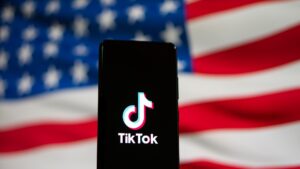[ad_1]
Google’s Search Generative Experience (SGE) is having an “extreme” impact on healthcare queries and a high impact on ecommerce, B2B tech, insurance and education.
That’s according to new data released by enterprise SEO platform BrightEdge and the company’s new-ish technology, BrightEdge Generative Parser.
It’s surprising to see healthcare at the top of the list here, where many queries would fall under what Google would consider Your Money or Your Life (YMYL) type queries. Meanwhile, if you look at another YMYL area, finance, SGE only impacts 17% of queries.
Industry breakdown. One billion queries across nine industries were analyzed to see which queries were impacted by SGE, and in which state SGE was triggered. As a reminder, there are three states of SGE:
- Collapsed is when a truncated AI-generated answer is shown.
- Opt-in is when users must request an AI-generated answer.
- None is when a query doesn’t trigger SGE.
The results:
- Healthcare: 76% of queries:
- Collapsed (70%)
- Opt-in (17%)
- Ecommerce: 49% of queries:
- Collapsed (25%)
- Opt-in (72%)
- B2B Tech: 48% of queries:
- Collapsed (23%)
- Opt-in (72%)
- Insurance: 45% of queries:
- Collapsed (34%)
- Opt-in (35%)
- Education: 44% of queries:
- Collapsed (17%)
- Opt-in (80%)
- Restaurants: 36% of queries:
- Collapsed (4%)
- Opt-in (96%)
- Entertainment: 36% of queries:
- Collapsed (5%)
- Opt-in (91%)
- Travel: 30% of queries:
- Collapsed (16%)
- Opt-in (81%)
- Finance: 17% of queries:
- Collapsed (5%)
- Opt-in (38%)
Here’s that data in a visualization:


Why we care. Google’s SGE is going to impact industries differently. While we know these numbers will change over time as Google continues to experiment and analyze user interactions, it’s helpful to understand which industries are more likely to be impacted now so brands can start thinking about new and more complex ways to target, influence and win with searchers in AI-driven experiences.
More emergent SGE features. BrightEdge’s report also shared additional insights about what’s happening with SGE right now:
- Places is now the most common type of SGE module. Essentially, Places mirrors the local pack and includes prominent citations and user reviews.
- Unordered lists have been seeing accelerated experimentation since the start of the year. Google has added more context, in the form of images and descriptions.
- Reviews: Clickable snippets taken from full reviews are now being shown across all industries.
- Perks: A perk could be free delivery or stock status. These show up for ecommerce products in SGE and AI-driven shopping experiences.
AI has an opinion. SGE is a “fundamental shift” that will impact all companies – and their bottom line, according to Jim Yu, BrightEdge co-founder and executive chairman.
- “Marketers will have less of a say in the customer journey. Google will have the ultimate opinion on the quality and relevancy of your brand. This will have a massive impact on all types of marketers in every kind of industry,” Yu said.
For a brand like BMW, for example, Google’s SGE will include “opinion.” That’s because an AI-generated answer will highlight things like pros and cons or critical considerations, such as high maintenance costs or supply chain constraints for parts. Whereas, Google’s traditional Search results have typically reflected web content.
Ultimately, it means searchers may spend more time getting information straight from Google before visiting a website. So understanding the new “intent” and ”conversational” landscape of search will be mission-critical for success, according to BrightEdge.
Dig deeper. New Google SGE insights: Content formats, YMYL, product views
The report. BrightEdge is now doing live SGE update monitoring as part of its resource, The Ultimate Guide to Google SGE.
[ad_2]
Source link





